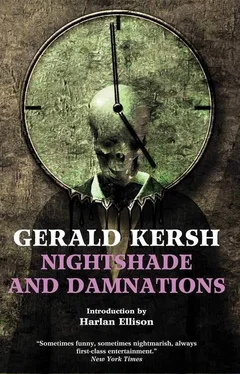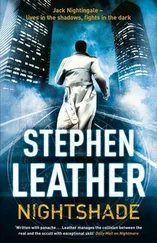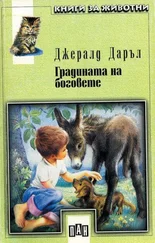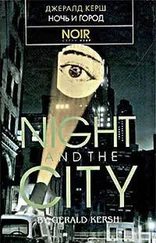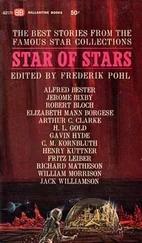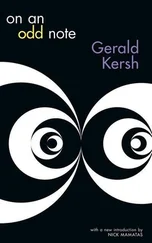Джералд Керш - Nightshade and Damnations
Здесь есть возможность читать онлайн «Джералд Керш - Nightshade and Damnations» весь текст электронной книги совершенно бесплатно (целиком полную версию без сокращений). В некоторых случаях можно слушать аудио, скачать через торрент в формате fb2 и присутствует краткое содержание. Город: Richmond, Год выпуска: 2013, Издательство: Valancourt Books, Жанр: Фантастика и фэнтези, на английском языке. Описание произведения, (предисловие) а так же отзывы посетителей доступны на портале библиотеки ЛибКат.
- Название:Nightshade and Damnations
- Автор:
- Издательство:Valancourt Books
- Жанр:
- Год:2013
- Город:Richmond
- ISBN:нет данных
- Рейтинг книги:3 / 5. Голосов: 1
-
Избранное:Добавить в избранное
- Отзывы:
-
Ваша оценка:
- 60
- 1
- 2
- 3
- 4
- 5
Nightshade and Damnations: краткое содержание, описание и аннотация
Предлагаем к чтению аннотацию, описание, краткое содержание или предисловие (зависит от того, что написал сам автор книги «Nightshade and Damnations»). Если вы не нашли необходимую информацию о книге — напишите в комментариях, мы постараемся отыскать её.
Nightshade and Damnations — читать онлайн бесплатно полную книгу (весь текст) целиком
Ниже представлен текст книги, разбитый по страницам. Система сохранения места последней прочитанной страницы, позволяет с удобством читать онлайн бесплатно книгу «Nightshade and Damnations», без необходимости каждый раз заново искать на чём Вы остановились. Поставьте закладку, и сможете в любой момент перейти на страницу, на которой закончили чтение.
Интервал:
Закладка:
“Starting up, I saw, at the rim of the plateau, a pair of eyes that picked up luminosity from the fading light of the fire. A jaguar , I thought, and took up my rifle. But it could not have been a jaguar because, when I looked left and right I saw that the plateau was ringed with pairs of shining eyes . . . as it might be, a collar of opals; and there came to my nostrils an odor of God knows what.
“Fear has its smell as any animal-trainer will tell you. Sickness has its smell—ask any nurse. These smells compel healthy animals to fight or to run away. This was a combination of the two, plus a stink of vegetation gone bad. I fired at the pair of eyes I had first seen. Then, all the eyes disappeared while, from the jungle, there came a chattering and a twittering of monkeys and birds, as the echoes of the shot went flapping away.
“And then, thank God, the dawn came. I should not have liked to see by artificial light the thing I had shot between the eyes.
“It was gray and, in texture, tough and gelatinous. Yet, in form, externally, it was not unlike a human being. It had eyes, and there were either vestiges—or rudiments—of head, and neck, and a kind of limbs.
“Yeoward told me that I must pull myself together; overcome my ‘childish revulsion,’ as he called it; and look into the nature of the beast. I may say that he kept a long way away from it when I opened it. It was my job as zoologist of the expedition, and I had to do it. Microscopes and other delicate instruments had been lost with the canoes. I worked with a knife and forceps. And found? Nothing: a kind of digestive system enclosed in very tough jelly, a rudimentary nervous system, and a brain about the size of a walnut. The entire creature, stretched out, measured four feet.
“In a laboratory I could tell you, perhaps, something about it . . . with an assistant or two, to keep me company. As it was, I did what I could with a hunting-knife and forceps, without dyes or microscope, swallowing my nausea—it was a nauseating thing!—memorizing what I found. But, as the sun rose higher, the thing liquefied, melted, until by nine o’clock there was nothing but a glutinous gray puddle, with two green eyes swimming in it. . . . And those eyes—I can see them now—burst with a thick pop , making a detestable sticky ripple in that puddle of corruption. . . .
“After that, I went away for a while. When I came back, the sun had burned it all away, and there was nothing but something like what you see after a dead jellyfish has evaporated on a hot beach. Slime. Yeoward had a white face when he asked me: ‘What the devil is it?’ I told him that I didn’t know, that it was something outside my experience, and that although I pretended to be a man of science with a detached mind, nothing would induce me ever to touch one of the things again.
“Yeoward said: ‘You’re getting hysterical, Goodbody. Adopt the proper attitude. God knows, we are not here for the good of our health. Science, man, science! Not a day passes but some doctor pokes his fingers into fouler things than that!’ I said: ‘Don’t you believe it. Professor Yeoward, I have handled and dissected some pretty queer things in my time, but this is something repulsive. I have nerves? I dare say. Maybe we should have brought a psychiatrist . . . I notice, by the way, that you aren’t too anxious to come close to me after I’ve tampered with that thing. I’ll shoot one with pleasure, but if you want to investigate it, try it yourself and see!’
“Yeoward said that he was deeply occupied with his metal plate. There was no doubt, he told me, that this machine that had been had come from Mars. But, evidently, he preferred to keep the fire between himself and me, after I had touched that abomination of hard jelly.
“Yeoward kept himself to himself, rummaging in the ruin. I went about my business, which was to investigate forms of animal life. I do not know what I might I have found, if I had had—I don’t say the courage, because I didn’t lack that—if I had had some company. Alone, my nerve broke.
“It happened one morning. I went into the jungle that surrounded us, trying to swallow the fear that choked me, and drive away the sense of revulsion that not only made me want to turn and run, but made me afraid to turn my back even to get away. You may or may not know that, of all the beasts that live in that jungle, the most impregnable is the sloth. He finds a stout limb, climbs out on it, and hangs from it by his twelve steely claws; a tardigrade that lives on leaves. Your tardigrade is so tenacious that even in death, shot through the heart, it will hang on to its branch. It has an immensely tough hide covered by an impenetrable coat of coarse, matted hair. A panther or a jaguar is helpless against the passive resistance of such a creature. It finds itself a tree, which it does not leave until it has eaten every leaf, and chooses for a sleeping place a branch exactly strong enough to bear its weight.
“In this detestable jungle, on one of my brief expeditions—brief, because I was alone and afraid—I stopped to watch a giant sloth hanging motionless from the largest bough of a half-denuded tree, asleep, impervious, indifferent. Then, out of that stinking green twilight came a horde of those jellyfish things. They poured up the tree, and writhed along the branch.
“Even the sloth, which generally knows no fear, was afraid. It tried to run away, hooked itself on to a thinner part of the branch, which broke. It fell, and at once was covered with a shuddering mass of jelly. Those boneless men do not bite: they suck. And, as they suck, their color changes from gray to pink and then to brown.
“But they are afraid of us. There is race-memory involved here. We repel them, and they repel us. When they became aware of my presence, they—I was going to say, ran away—they slid away, dissolved into the shadows that kept dancing and dancing and dancing under the trees. And the horror came upon me, so that I ran away, and arrived back at our camp, bloody about the face with thorns, and utterly exhausted.
“Yeoward was lancing a place in his ankle. A tourniquet was tied under his knee. Nearby lay a dead snake. He had broken its back with that same metal plate, but it had bitten him first. He said: ‘What kind of a snake do you call this? I’m afraid it is venomous. I feel a numbness in my cheeks and around my heart, and I cannot feel my hands.’
“I said: ‘Oh, my God! You’ve been bitten by a jararaca!’
“‘And we have lost our medical supplies,’ he said, with regret. ‘And there is so much work left to do. Oh, dear me, dear me! . . . Whatever happens, my dear fellow, take this and get back.’
“And he gave me that semicircle of unknown metal as a sacred trust. Two hours later, he died. That night the circle of glowing eyes grew narrower. I emptied my rifle at it, time and again. At dawn, the boneless men disappeared.
“I heaped rocks on the body of Yeoward. I made a pylon, so that the men without bones could not get at him. Then—oh, so dreadfully lonely and afraid!—I shouldered my pack, and took my rifle and my machete, and ran away, down the trail we had covered. But I lost my way.
“Can by can of food, I shed weight. Then my rifle went, and my ammunition. After that, I threw away even my machete. A long time later, that semicircular plate became too heavy for me, so I tied it to a tree with liana vine, and went on.
“So I reached the Ahu territory, where the tattooed men nursed me and were kind to me. The women chewed my food for me, before they fed me, until I was strong again. Of the stores we have left there, I took only as much as I might need, leaving the rest as payment for guides and men to man the canoe down the river. And so I got back out of the jungle. . . .
Читать дальшеИнтервал:
Закладка:
Похожие книги на «Nightshade and Damnations»
Представляем Вашему вниманию похожие книги на «Nightshade and Damnations» списком для выбора. Мы отобрали схожую по названию и смыслу литературу в надежде предоставить читателям больше вариантов отыскать новые, интересные, ещё непрочитанные произведения.
Обсуждение, отзывы о книге «Nightshade and Damnations» и просто собственные мнения читателей. Оставьте ваши комментарии, напишите, что Вы думаете о произведении, его смысле или главных героях. Укажите что конкретно понравилось, а что нет, и почему Вы так считаете.
